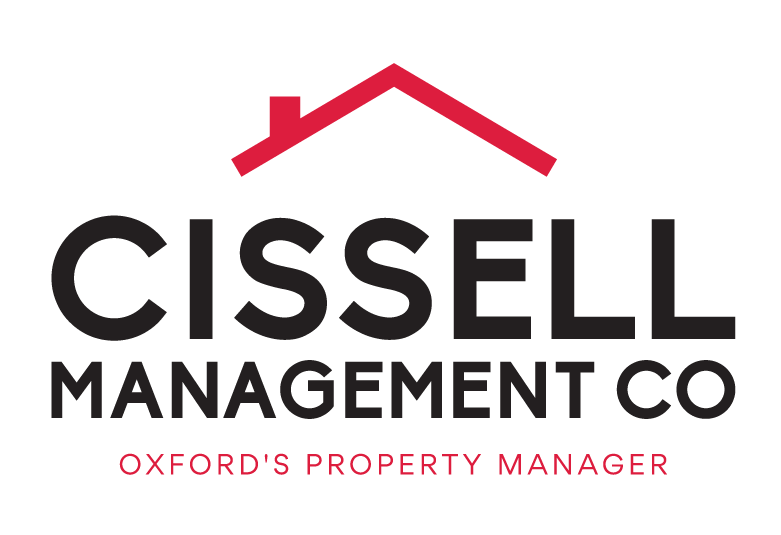Mistake #4 - Financial Fumbles
Are you a landlord looking to maximize your profit? Nobody invests in real estate to lose money, regardless of their end goal. Making Financial fumbles is mistake #4 in our series of five mistakes that cost rental property owners money.
Are you looking for cash flow, appreciation, and financial freedom as a real estate investor? Or did you buy property hoping to hold it until retirement? Maybe you are a parent who purchased the property, hoping that this will be the thing that funds your child's college. There are many different reasons why people own rental property, but no matter the reason, everyone wants to make a return on their money.
Some people want huge returns; they're about the percentage, and others have different goals and agendas, so the return doesn't matter as much. But no one wants to look back after 15 years and wonder why they didn't make any money while they went through all that hard work for nothing.
Isn't making money in real estate a shoo-in?
Here are Financial fumbles that I see happen again and again:
Rent Too High or Too Low
As I'm looking through ads online, I see owners who set their rent far too high and too low. If you set your rent too high, you may get prospects, and you may get it rented. But the problem is that you'll probably rent it to someone not financially responsible. They likely don't make good financial decisions if they're willing to pay too much for a property. Too low, and you aren't covering your cost each month. Many property owners look at their mortgage and think if that's covered, then they're good. But there are many more expenses to go along with the rental property than just your mortgage.
Renting to Poorly Qualified Residents
This goes back to mistake #1 of not having objective rental criteria. Not only do you have trouble getting payments on time, but an irresponsible tenant likely won't care for the home. So you have a mess to clean up after they move out. Don't forget to figure in the cost of the added stress and the time spent with an irresponsible tenant. Time is your most valuable asset, and you can't get it back.
Not Improving Your Property
Why does the IRS allow you to depreciate your home over 27 and a half years? Do they want to give you free money? No, it's because your home is aging, and the property, not the land, but the home itself, do depreciate. It wears out; things have to be replaced. Am I saying you need to remodel your home every time a new fad comes along? No, but many owners never want to update their properties at all. They do the minimum required and then wonder why they're getting hundreds less a month in rent or getting bad residents who tear up the property.
If you want good residents to care for the home, you have to care for the home.
Think about this: if you spend $10,000 to update your property with new floors and new paint, and because of this, you're able to bring in $150 more a month in rent. That's $1,800 for the year.
$1800/$10,000 = 18% return on your money.
Not only have you made more money, but you've also put yourself in a position to get better quality residents because good residents want to live in a home that's cared for.
Poor Financial Planning
You must plan for repairs and capital expenses. Standard practice is to hold back in reserves 10% for maintenance and 10% for capital expenses. If it's a relatively new property, you may get away with spending only 5% your first ten years on maintenance, and then you may average 15% a year for the next ten years.
One more expense self-managers rarely consider is management cost. They feel they don't have a cost since they do it themselves, but that's not true. Their time is worth something, and they're losing money if they're not figuring that in when calculating their rental rates.
Lax Accounting Practices
How many of you have a drawer full of receipts and dread tax time? Or maybe you had big plans to keep up with everything in rental software so you could pull quick reports to know, but life got in the way. Now the only expense you can quickly pull up is your mortgage payment.
Keeping track of expenses is such a simple thing to do. Why is it so difficult? You're busy, and don't take the few minutes you should spend each week to organize your receipts and expenses. And because of this, you could be missing tax deductions and making blind financial decisions.
Two years ago, my client reached out about purchasing a property. I called the listing agent to get the details and the numbers on the previous rental history. The selling agent's client told her he was making $300 more a month by renting it as a short-term rental rather than a long-term rental. I asked for the owner's records, and he WAS making $300 more a month, except he wasn't keeping track of utilities, the internet, the tourism tax, and the management cost (he was self-managing), which is extremely high considering it was a short-term rental. After calculating all that, he was making $100 less a month with much more headache than he would have if he had just had a long-term renter in the property. This investor made blind decisions because he didn't have good financial records.
Don't make these financial fumbles! You may look back after years of owning your property to discover you would have been better off not owning the property.

